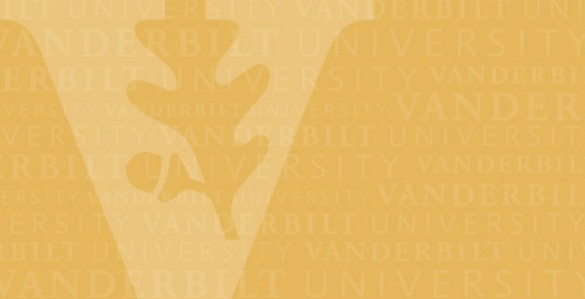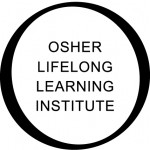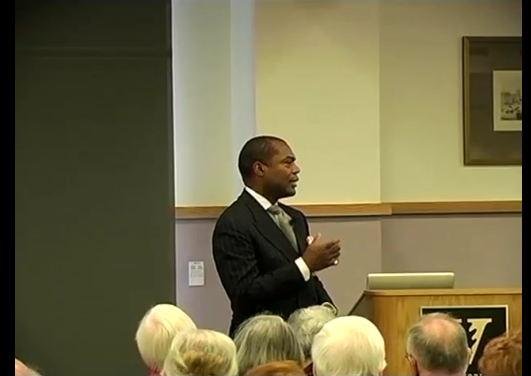Students at Vanderbilt’s Osher Lifelong Learning Institute are proof that learning never stops
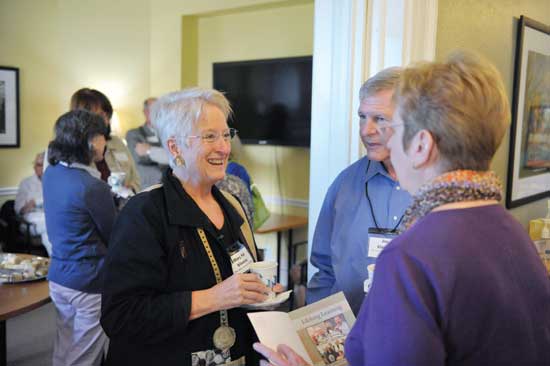
Tucked away in a second-floor meeting space at The Commons Center, not far from the bustle of freshmen finishing up meals in the dining hall, checking mail or just passing through on the way to class, convenes a bright-eyed group of students eager to discuss the day’s topic:
Polarization within the U.S. government. Cutting-edge advances in medical research and technology. The Civil War’s effects on the Tennessee home front. The genetics behind developmental disabilities and the interventions used to address them.
The students listen attentively, challenge the instructor with insightful questions, and participate in a lively discussion that carries over into the break.
This scene – a model for what university learning should be – doesn’t involve Vanderbilt undergrads or even graduate students. Instead, the students are older adults enrolled in the Osher Lifelong Learning Institute at Vanderbilt, a program as intellectually invigorating as any of its counterparts on campus.
Started in 1995 as Retirement Learning at Vanderbilt, the program features top faculty speaking in-depth on a variety of subjects; monthly lunch-and-learn lectures by prominent guests from the community; day trips exploring Nashville and the surrounding region; and social events that help build fellowship among participants.
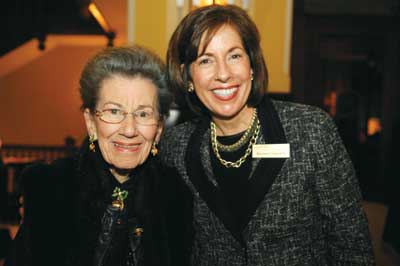
Much like the undergraduate college experience, the institute is designed to give its students a broad range of learning opportunities, said Norma Clippard, director.
“The Vanderbilt campus is home to a wealth of educational resources, and we feel this older age group is an ideal audience to take advantage of them – and they’ve responded tremendously,” she said. Over the last decade, enrollment in the program has grown from a couple hundred to more than 1,000 participants each year.
In 2006, the program benefited from the first of several $100,000 grants from the San Francisco-based Bernard Osher Foundation, which seeks to improve quality of life through support for higher education, including a national lifelong learning network for older adults. Vanderbilt’s Retirement Learning program, renamed the Osher Lifelong Learning Institute at Vanderbilt, became the first such institute in Tennessee. In 2009, Vanderbilt was awarded a $1 million endowment from the Osher Foundation, and Clippard has her sights set on a second million-dollar endowment, which would ensure the Vanderbilt program’s longevity.
The institute conducts classes five days a week for six weeks each fall, winter and spring. The non-credit courses are affordable; for $80, participants can take up to three courses each term, with additional courses costing just $10 each. Financial assistance is also available. On some days, the classes convene at area churches and temples, and film-related classes often meet at the historic Belcourt Theatre in Hillsboro Village. But several days each term, classes meet in a designated space at The Commons Center, a meaningful venue for the Osher students and for the program, Clippard explained.
“[rquote]We feel that it’s very important for the Osher students to be on campus and to get a taste of the collegiate environment,” she said. “We also feel that it’s important for our young undergrads to see these older learners and realize that their time in college is only the beginning of their educations.”[/rquote]
The Osher curriculum is not unlike the university’s varied course offerings. Osher’s winter 2012 term, set to begin Jan. 9, includes courses such as “The Other UN,” “Politics in a Polarized Polity” and the film course “Bogey and Bacall.”
Two winter term courses highlight particular Vanderbilt strengths. “Medical Advances” will give Osher students access to experts from Vanderbilt University Medical Center speaking about heart care, Alzheimer’s disease, personalized medicine and more; and “A Window into Human Development and Disabilities” will feature faculty from the Vanderbilt Kennedy Center talking about the science behind autism and other developmental disabilities and the interventions used to address them.
“We try to keep the curriculum very balanced and diverse. Our students are well-educated, curious people, so they are interested in anything and everything,” said Clippard, who is advised by a curriculum committee as well as a board of directors.
“My favorite subjects are history, philosophy, literature, art. … We had a fabulous course titled ‘Comparative Religions’ taught by Professor Emeritus Charles Hambrick,” said Nancy Adams, current president of the Osher board and a Vanderbilt alumna who has taken lifelong learning courses for about 15 years.
“Some of the courses are more lighthearted, but all have an academic element to them,” she said. “And with the Vanderbilt connection, we can be sure we are learning from the most qualified instructors.
“I thought the professors were wonderful when I was an undergraduate here, but they are even better now,” she said.
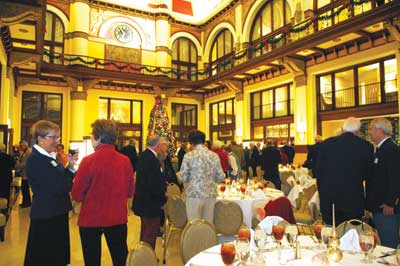
Vanderbilt faculty also find participating in the Osher program rewarding. Michael Bess, Chancellor’s Professor of History who has won several awards for excellence in teaching at Vanderbilt, has taught Osher courses on 20th-century European history and World War II.
“Several things distinguish the Osher students,” Bess said. “They are quite passionate about the classes – they are here because they want to learn. And because they are adults, most of them are not hesitant to engage with me intellectually in a very direct way. It ends up being as much a conversation as a presentation, and that is just a delight to be part of.”
Bess said his interaction with the Osher students also helps to inform the teaching he takes back to the undergraduate classroom.
“Some of the Osher students lived through World War II, so there is an invaluable give-and-take about their own experiences, perspectives and memories. That has been a particularly rewarding and exciting aspect of it,” he said.
Intellectual engagement makes for more than just good conversation. Research has shown that challenging the mind to grasp new concepts and process new information can improve memory and even brain function on the cellular level.
“There is accumulating evidence that physical and intellectual challenge, combined with a healthy diet, may stave off what was previously seen as an inevitable decline in cognitive function as the result of normal aging,” said Jeanette Norden, a Vanderbilt professor of cell and developmental biology who has taught in the Osher program. “Intellectual challenge maintains the health of neurons and takes advantage of the brain’s own plasticity to reinforce or to create new synaptic connections.”
Osher courses also help keep students relevant and informed.
“What’s going on now in a particular field varies greatly from what we learned as students the first time around,” said Adams, a member of the Class of ’55. “A lot of time has passed, and the world has changed dramatically. Naturally, we want to understand and stay informed of the latest developments.”
While as many as a third of Osher students are Vanderbilt alumni and others know the university as longtime Commodore fans, some participants’ first introduction to Vanderbilt has been through the Osher program. When Bob Holmes moved to Tennessee from Virginia in 2004, he sought out lifelong learning opportunities.
“[rquote]Although I knew nothing about Vanderbilt and had no connection to the university, I decided to see if it offered retirement learning classes,” he said. “I signed up for one and have been hooked ever since.[/rquote]
“I am brought back each term by the quality of the instructors and the variety of the courses,” he said. “My biggest problem is to avoid overloading my personal schedule by taking too many.”
The relaxed, informal nature of the classes provides a welcoming environment. Osher students come from a variety of backgrounds and all parts of Nashville.
“The audience is always stimulating,” Holmes said. “I find the questions from the floor challenging, often leading to interesting discussions.”
And these discussions don’t stop when class is over. It’s not unusual, for example, for a group of students to eat lunch together in Hillsboro Village following a film class at The Belcourt. Being part of a peer group that shares similar interests can have long-term health benefits for older adults, Clippard said.
“I’ve had students tell me, with complete sincerity, that they feel they will live longer because of the lifelong learning program.”













